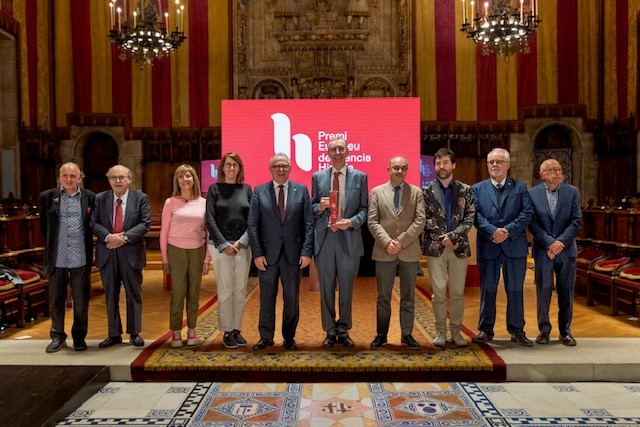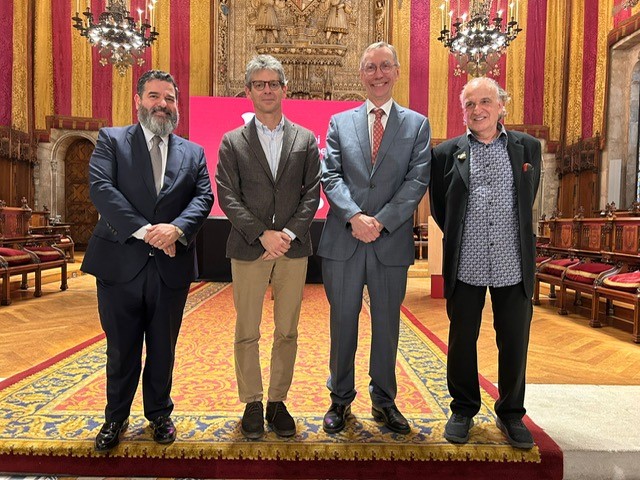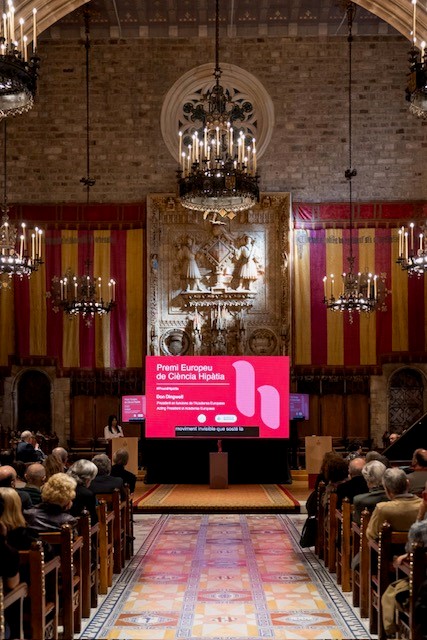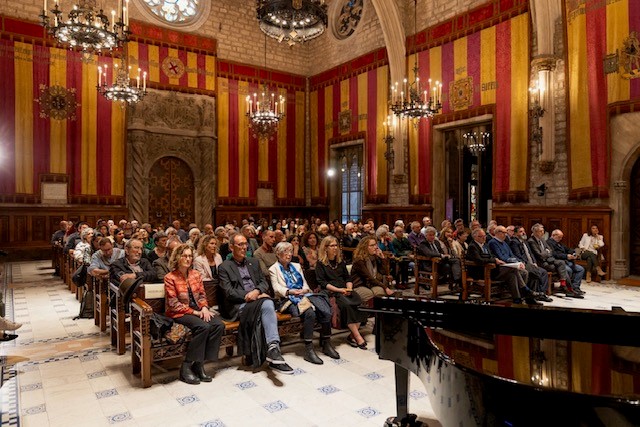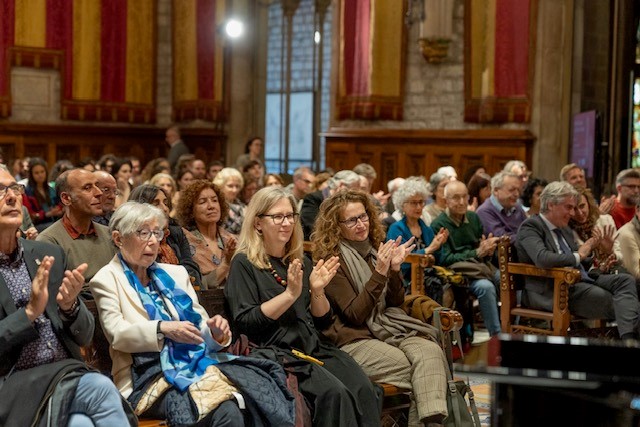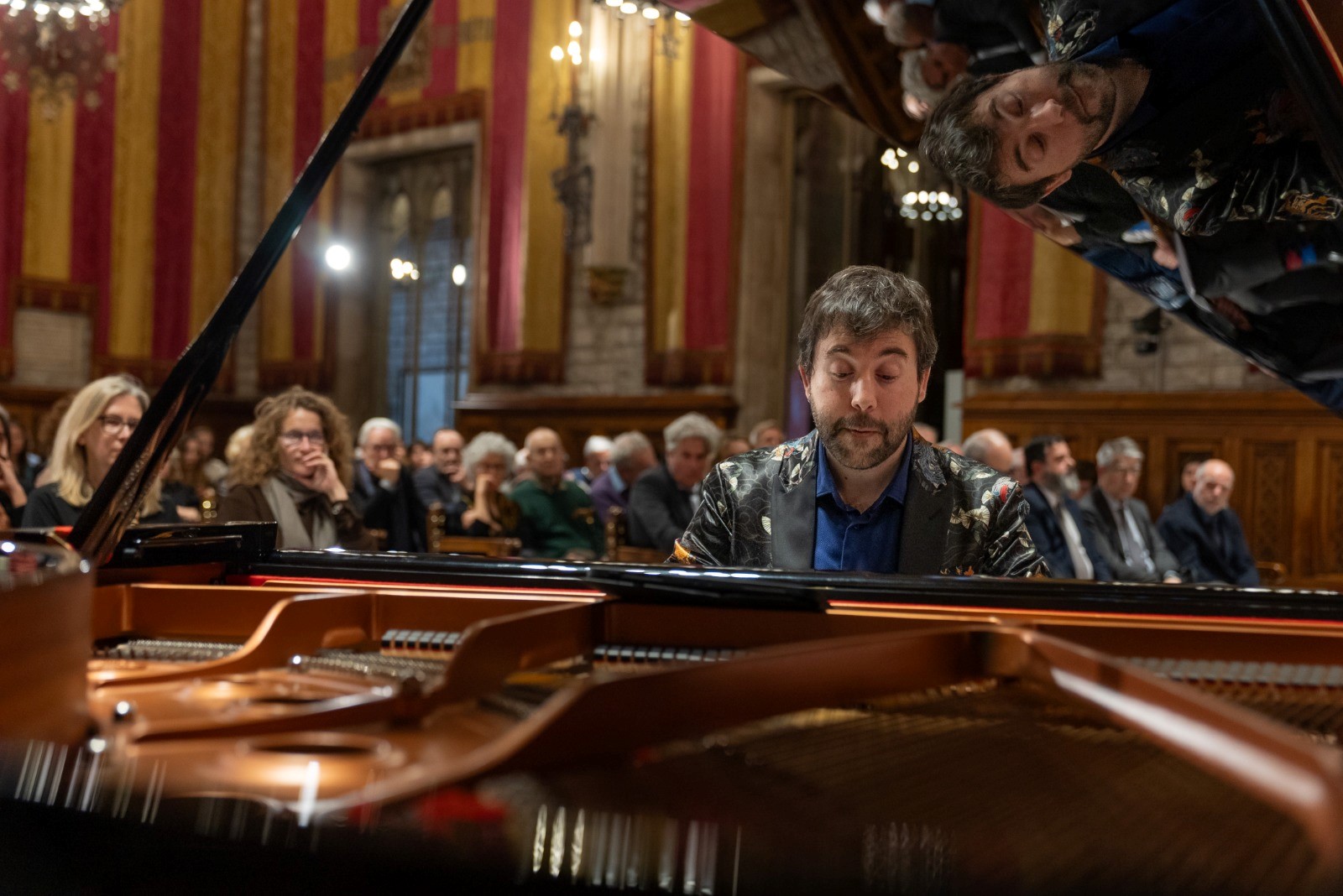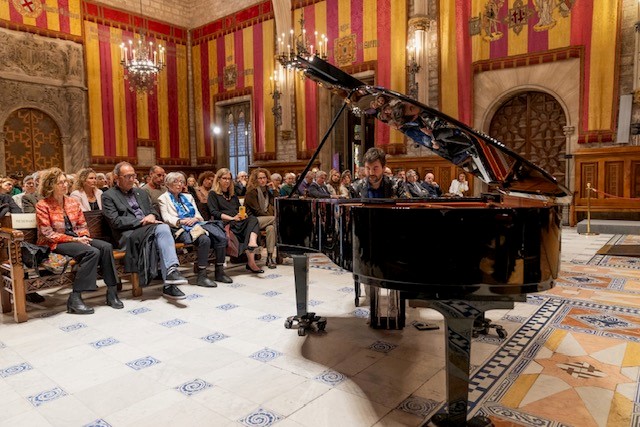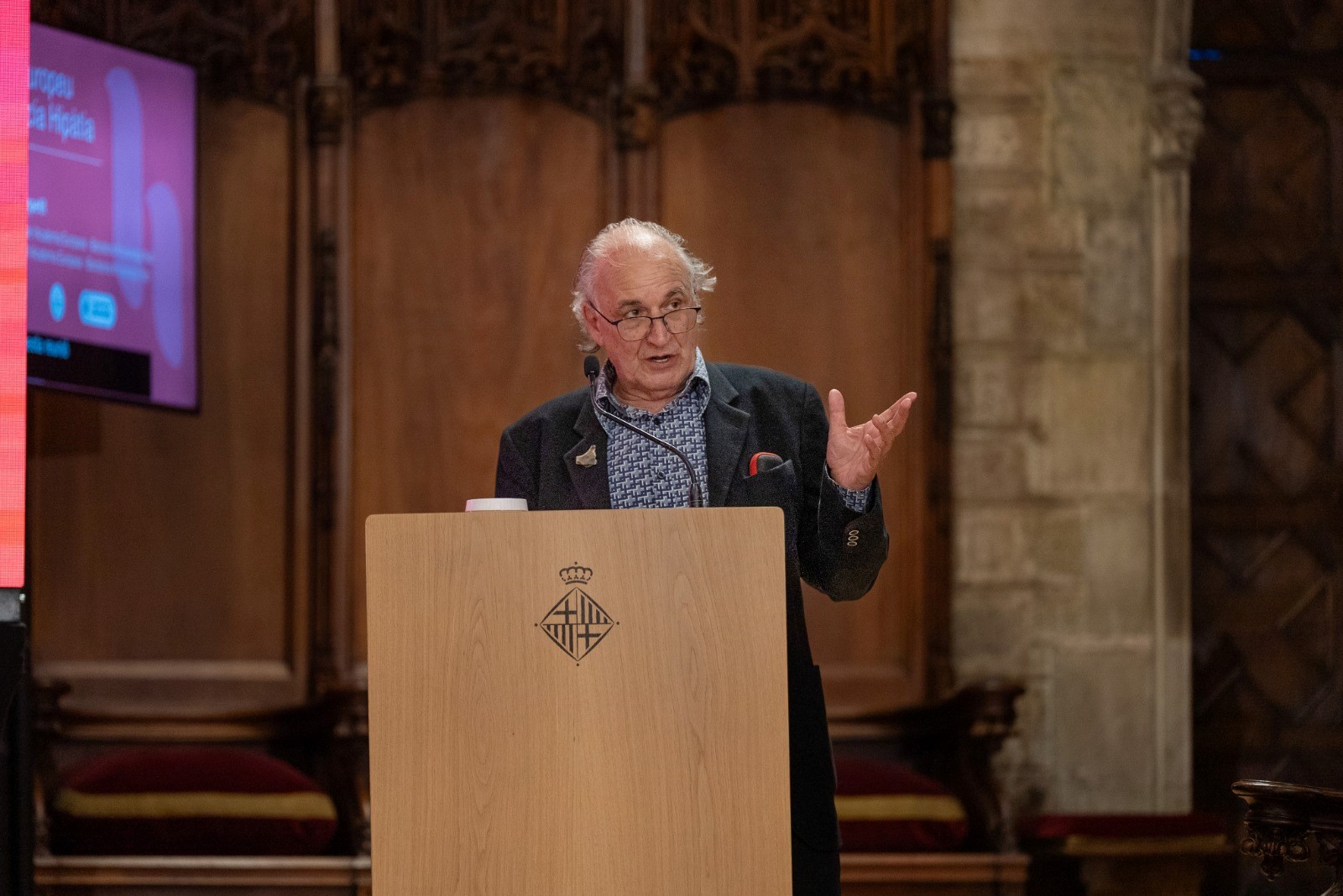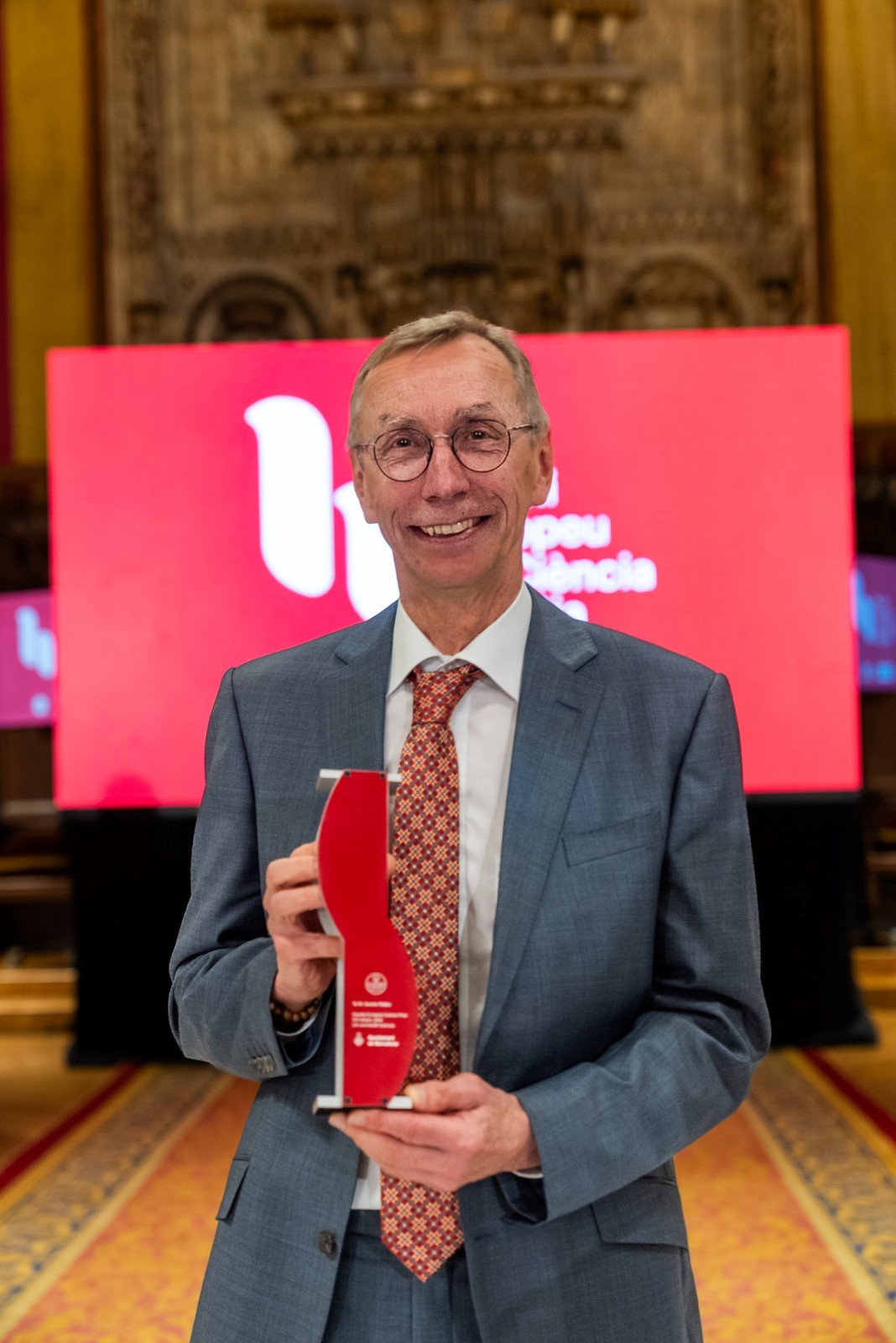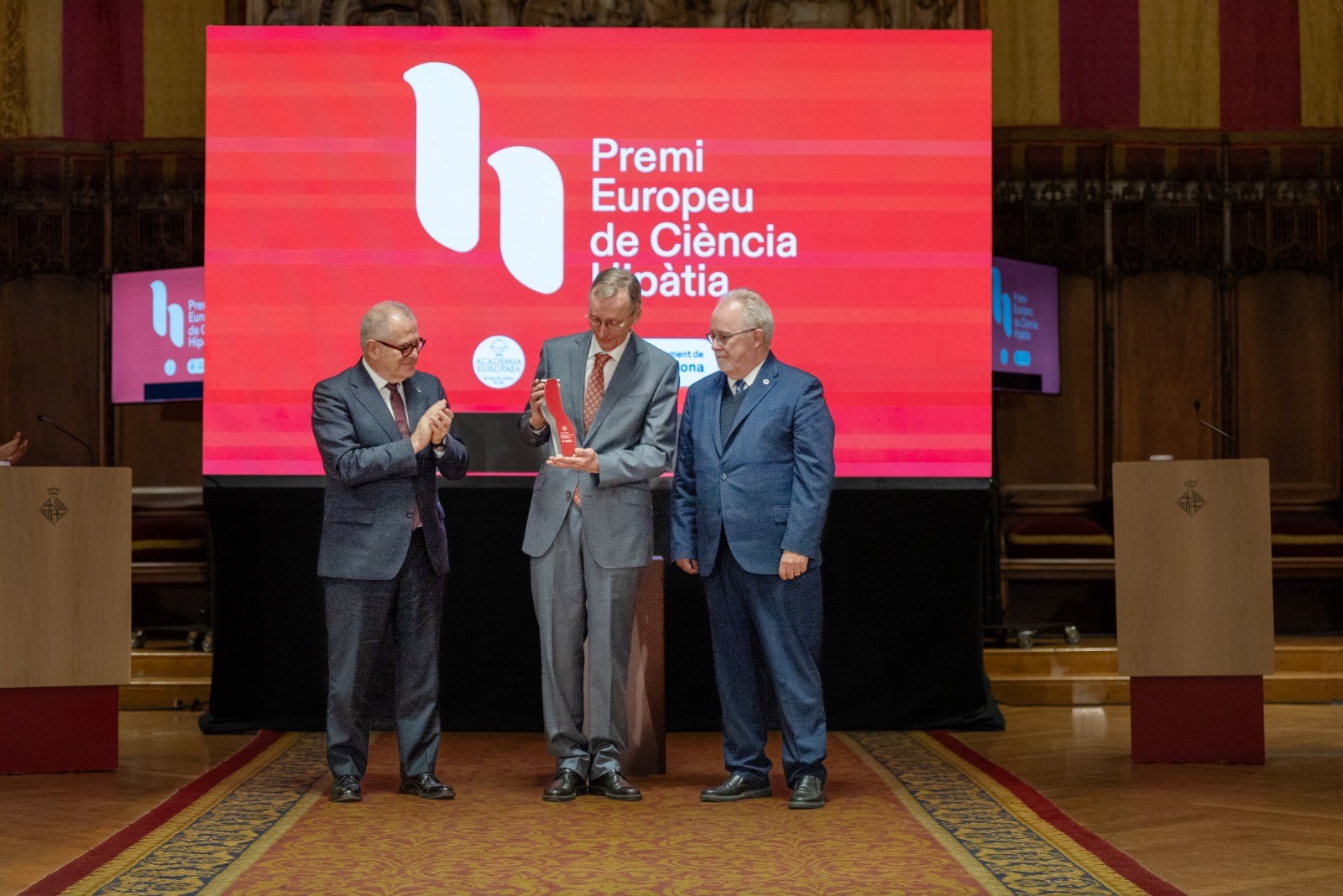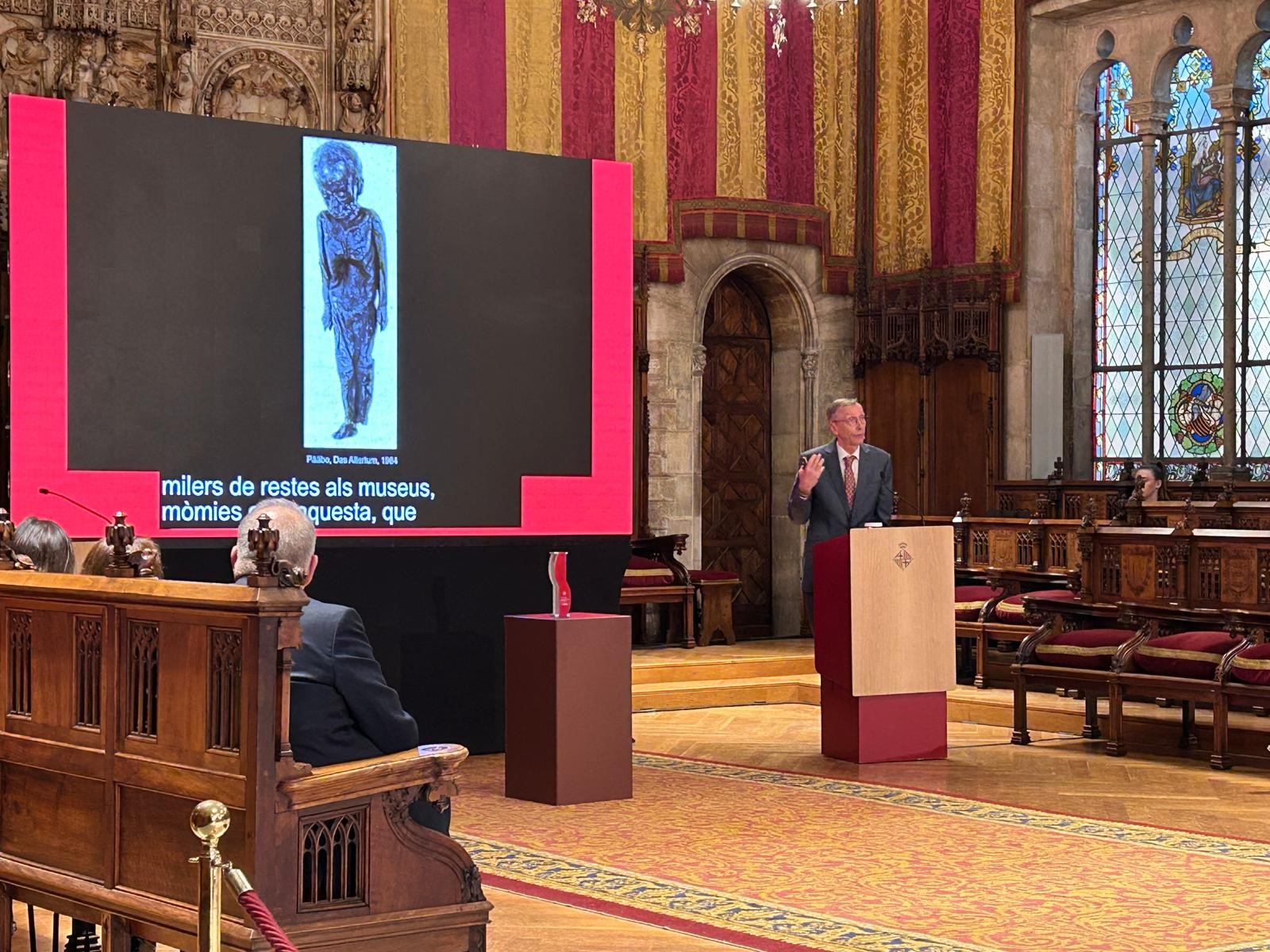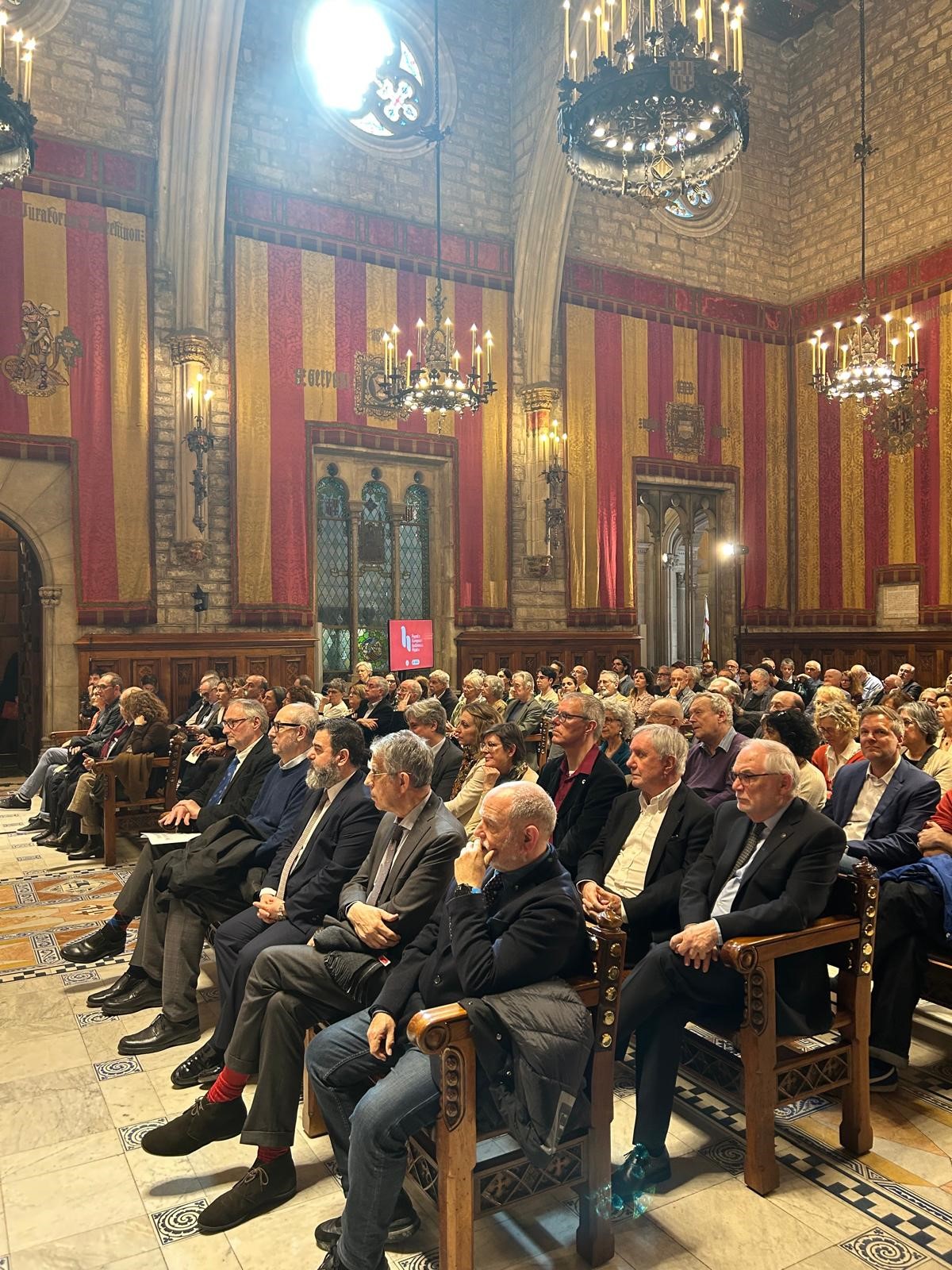Fifth Edition (2024)
BARCELONA HYPATIA EUROPEAN SCIENCE PRIZE
Awarded by the Barcelona City Council in collaboration with the Academia Europaea-Barcelona Knowledge Hub
Swedish biologist and geneticist, Nobel Prize in Medicine in 2022, is the winner of the fifth Hypatia Prize in the Life and Health Sciences category .
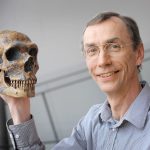 The Barcelona Hypatia European Science Prize in its fifth edition recognises Svante Pääbo.
The Barcelona Hypatia European Science Prize in its fifth edition recognises Svante Pääbo.
Launched by the Barcelona City Council in collaboration with the Academia Europaea-Barcelona Knowledge Hub (AE-BKH) within the framework of the Barcelona Science Plan, the Hypatia Prize seeks to project the city as a European capital of research and innovation. Its main goal is to spotlight science, as well as to promote, support and enhance the value of excellent research conducted in Europe and of its impact on society.
The award was presented on 7th April 2025 at an event in the Saló de Cent of the Barcelona City Hall in which Svante Pääbo gave the lecture “Of Neandertals, Denivosans and Modern Humans” in the company of Barcelona city officials, representatives from Barcelona’s scientific community and Members of Academia Europaea (AE). You can enjoy the video recording of the event though this LINK.
Prize winner Svante Pääbo
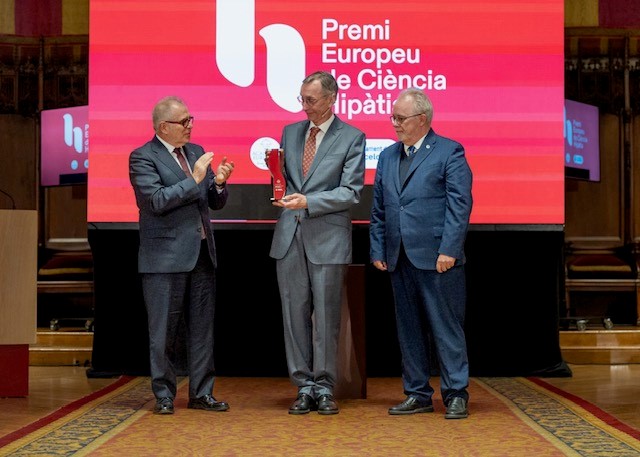
In 2013, Svante Pääbo (Stockholm, 1955) managed to definitively sequence the genome of the Neanderthal, a relative of today’s humans that became extinct about 30,000 years ago. He also made the sensational discovery of a previously unknown hominid, the Denisovans. Their research also revealed the gene transfer from Neanderthals to modern humans after their migration out of Africa about 70,000 years ago. Thus, the current non-African populations have between 1 and 4% of the genome coming from the Neandetals. This ancient gene flow has physiological relevance today, for example, affecting how our immune system reacts to infections.
His seminal research gave rise to a completely new scientific discipline: Paleogenomics, that is, the study of ancient genomes, in some cases hundreds of thousands of years old. By revealing genetic differences that distinguish all living humans from extinct hominins, their discoveries have provided the basis for exploring what makes us uniquely human. Pääbo defended his doctoral thesis in 1986 at Uppsala University, Sweden, and was a postdoctoral researcher at the University of Zurich, Switzerland, and later at the University of California, Berkeley, USA. He returned to Europe first as a professor at the University of Munich, and in 1999 he joined as director of the Max Planck Institute for Evolutionary Anthropology in Leipzig, Germany, where he is still active.
The Barcelona Hypatia European Science Prize, part of the Barcelona Science Plan
The Barcelona Hypatia European Science Prize is part of the Barcelona Science Plan 2020-2023, a comprehensive science policy with the aim of projecting Barcelona as a European capital of science and innovation. The Prize aims to recognise an outstanding scientist or researcher who has conducted her/his career in Europe at the highest international level and has had a strong influence on different fields of knowledge and a positive impact on society.
The Hypatia Prize is awarded annually and follows a triennial cycle, rotating each year among three major areas of knowledge:
● Science and Technology
● Life and Health Sciences
● Humanities and Social Sciences
The call for candidates is aimed at scientists and researchers who have carried out their research in a European country, having achieved a career of excellence at the highest international level, a positive influence on society and social well-being, and impact on different fields of knowledge. Nominations must be made by Members of Academia Europaea.
The name of the Prize honours Hypatia of Alexandria (344-415), a woman scientist and philosopher who successfully bridged and disseminated all scholarly disciplines known during her time and who, for this same reason, was assassinated by the forces of ignorance and fanaticism.
The Hypatia Prize constitutes one of the main features of the Barcelona Science Plan, a strategic initiative of the Barcelona City Council to promote the science and research infrastructures of the city, involving joint efforts by the scientific, academic, business and community sectors.
For more information contact AEbarcelona@fundaciorecerca.cat

